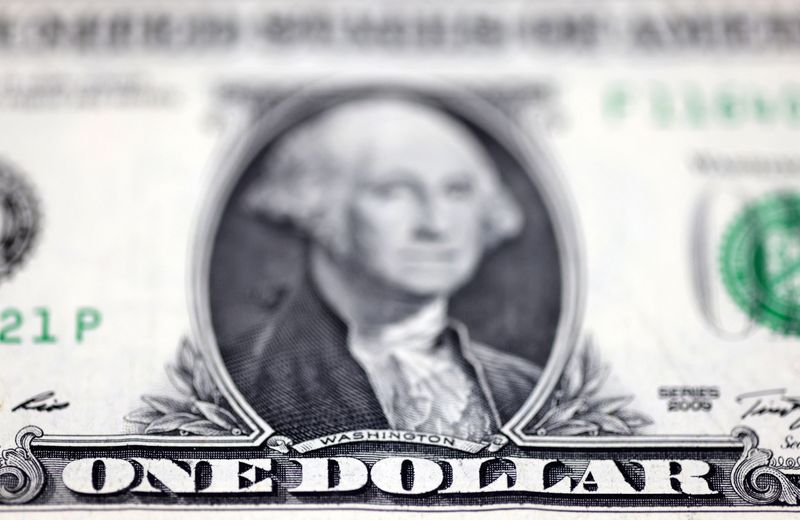
Dollar edges up on bets of US growth, inflation
By Karen Brettell
NEW YORK (Reuters) – The U.S. dollar edged higher on Thursday on expectations the currency would be boosted next year by policies by the incoming Donald Trump administration that are expected to boost growth and lift inflation.
Trading volumes were light on Thursday with many traders on holiday after Wednesday’s Christmas holiday and before next week’s New Year holiday.
Looser business regulations and tax cuts are expected to help propel U.S. growth next year while analysts say that a clamp-down on illegal immigration and the prospect of new tariffs on trading partners could increase price pressures, and weigh on the economy longer term.
That has boosted the dollar against its peers, though there remains a lot of uncertainty over exactly what policies will be introduced and what their impact will be.
Rising doubts over how many interest rate cuts the Federal Reserve will be able to undertake next year has added to the dollar rally in the past few weeks.
The U.S. central bank last week cut rates by 25 basis points as expected and Fed Chair Jerome Powell said more reductions in borrowing costs now hinge on further progress in lowering stubbornly high inflation.
Fed policymakers raised their inflation projections for 2025 and cut their interest rate forecast to 50 basis points for the year, from 100 basis points.
Money market traders are currently pricing in 35 basis points of cuts next year, implying they see a less than 50% chance that the Fed will make a second 25 basis point reduction.
Data on Thursday showed that the number of Americans filing new applications for jobless benefits dipped to the lowest in a month last week, consistent with a cooling but still-healthy U.S. labor market.
U.S. retail sales also rose 3.8% between Nov. 1 and Dec. 24, as intense promotion to drum up sales in what was expected to be a highly competitive holiday season for retailers prompted last-minute shopping among consumers.
The dollar index was last up 0.13% at 108.25. It is holding just below a two-year high of 108.54 reached on Friday.
The euro slipped 0.06% to $1.0398. The single currency fell to $1.03435 on Friday, the lowest since Nov. 22.
The greenback gained 0.31% to 157.89 Japanese yen. It peaked at 157.93 on Friday, the highest since July 17.
The Bank of Japan expects the economy to move closer to sustainably achieving the central bank’s 2% inflation target next year, Governor Kazuo Ueda said on Wednesday, suggesting the timing of its next interest rate increase was nearing.
In cryptocurrencies bitcoin fell 2.78% to $95,688.00.

